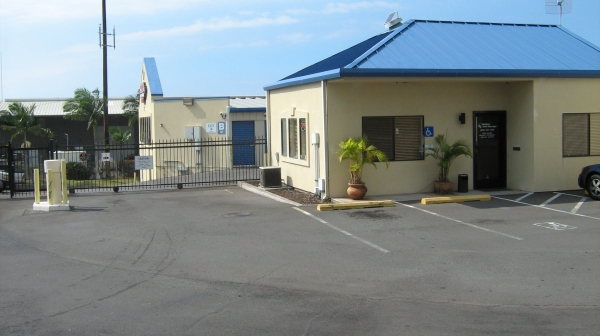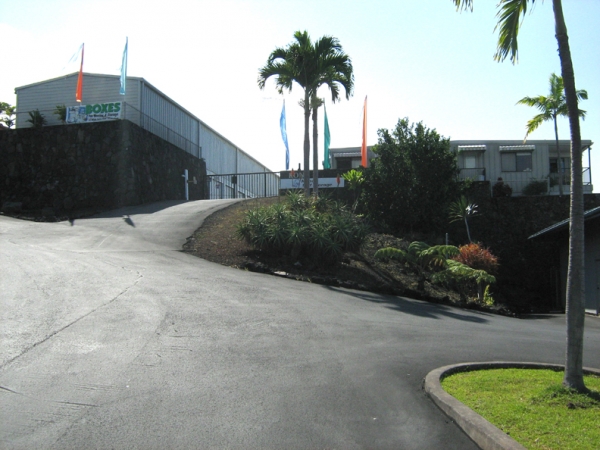Kailua Kona’s coastal environment and active lifestyle create a demand for storage that accommodates both personal and recreational needs. With the allure of outdoor activities such as surfing, hiking, and boating, residents often require space for seasonal gear, sports equipment, and personal belongings. The tropical climate also necessitates climate-controlled options to protect items from humidity and heat, ensuring that valuable possessions remain in optimal condition.
As a hub for both locals and tourists, Kailua Kona’s storage facilities cater to a diverse clientele, including homeowners looking to declutter and businesses needing secure inventory storage. The availability of drive-up access and convenient truck rental services enhances the user experience, making it easier for individuals to manage their belongings. With a focus on security features like video surveillance and alarms, residents can feel confident that their items are well-protected in this picturesque Hawaiian locale.
How Much Is a Storage Unit in Kailua Kona, HI?
Here’s what you can expect to pay for Kailua Kona storage units:
| 5’x5’ | $98 |
| 10’x10’ | $195 |
| 10’x15’ | $249 |
| 10’x20’ | $238 |
Kailua Kona, HI Storage Unit Amenities
Common storage unit amenities in Kailua Kona include:
- Climate Controlled
- Drive Up Access
- 1st Floor
- Video Cameras on Site
- Alarm in Unit
- Free Truck Rental
What to Look for in a Storage Unit in Kailua Kona
Climate-Controlled Units
The tropical climate in Kailua Kona can lead to high humidity levels, which may damage sensitive items like electronics, furniture, and important documents. Climate-controlled units help maintain a stable environment, protecting belongings from moisture-related issues such as mold and mildew.
Convenient Access
With an active lifestyle in mind, residents benefit from storage facilities that offer drive-up access, allowing for easy loading and unloading of items. This feature is particularly useful for those storing recreational gear or seasonal items, making it simple to retrieve belongings when needed.
Enhanced Security
Given the importance of safeguarding personal and business items, choosing a facility with robust security measures is essential. Look for features such as video surveillance, individual unit alarms, and gated access to ensure that your belongings are secure while stored.
Flexible Rental Options
With a mix of residents and businesses, Kailua Kona’s storage facilities often provide flexible rental agreements. This adaptability allows individuals to choose the duration that best fits their needs, whether for short-term storage during a move or long-term solutions for seasonal items.
Frequently Asked Questions
How Much Is a Storage Unit in Kailua Kona, HI?
Storage unit prices in Kailua Kona typically range from $98 to $249 per month, depending on the size and features of the unit. Smaller units, like 5’x5′ spaces, are more affordable, while larger or climate-controlled units are priced higher due to their added benefits.
Is Climate-Controlled Self-Storage Necessary in Kailua Kona?
Yes, climate-controlled units are highly recommended in Kailua Kona due to the area’s humidity and heat. Items such as furniture, electronics, and important documents are particularly vulnerable to damage from the tropical climate and will benefit from temperature and humidity control.
What Size Storage Unit Do I Need?
- 5×5 or 5×10: Ideal for small personal items, seasonal gear, or sports equipment.
- 10×10: Fits the contents of a one-bedroom apartment, including furniture and boxes.
- 10×20 or larger: Suitable for multi-bedroom homes, vehicles, or business inventory.
How Can I Save on a Storage Unit in Kailua Kona?
Save more by opting for promotional deals like waived fees or discounts for long-term storage. Additionally, consider sharing a larger unit with a friend or family member to split costs, which can be a practical way to reduce expenses.
Does My Insurance Cover Items in Storage?
Stored belongings may be covered under most renters’ or homeowners’ policies, but coverage limits often apply. Consulting your provider to confirm coverage and evaluating the need for extra storage insurance is recommended.










